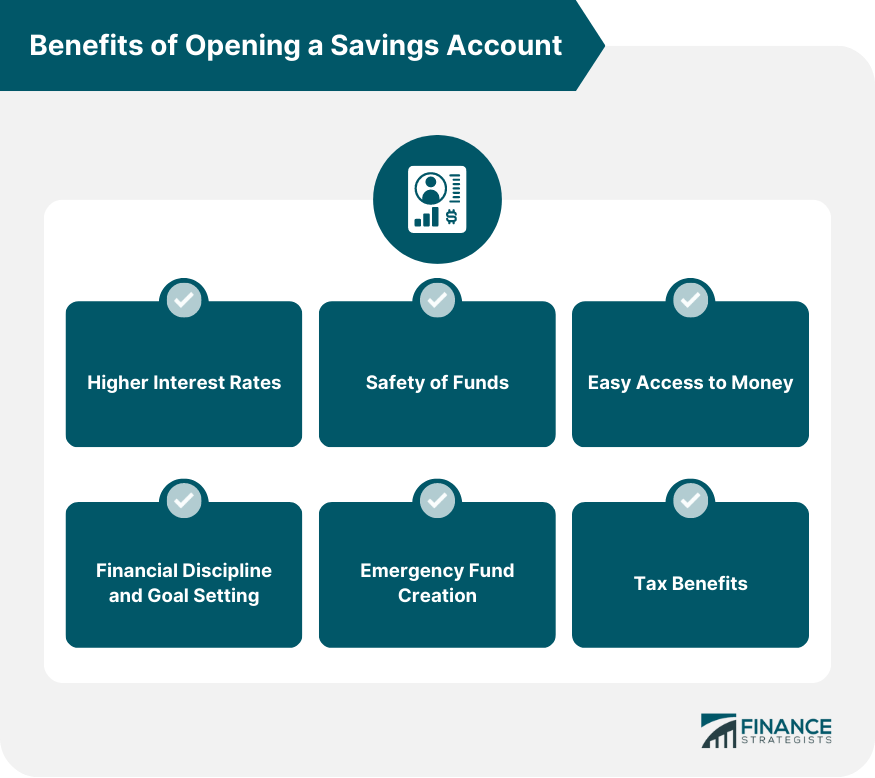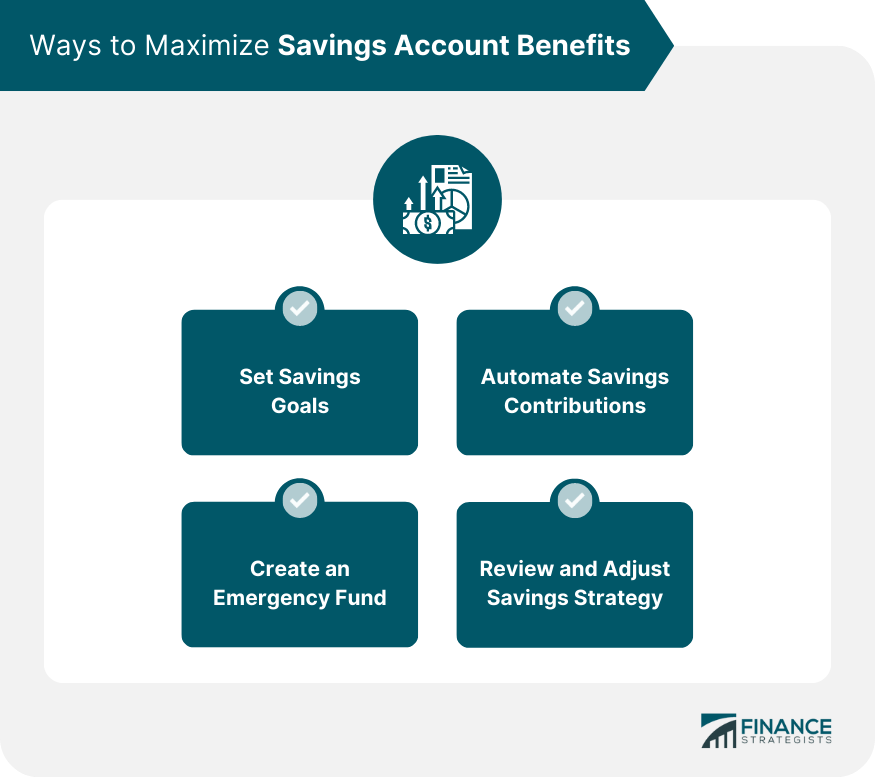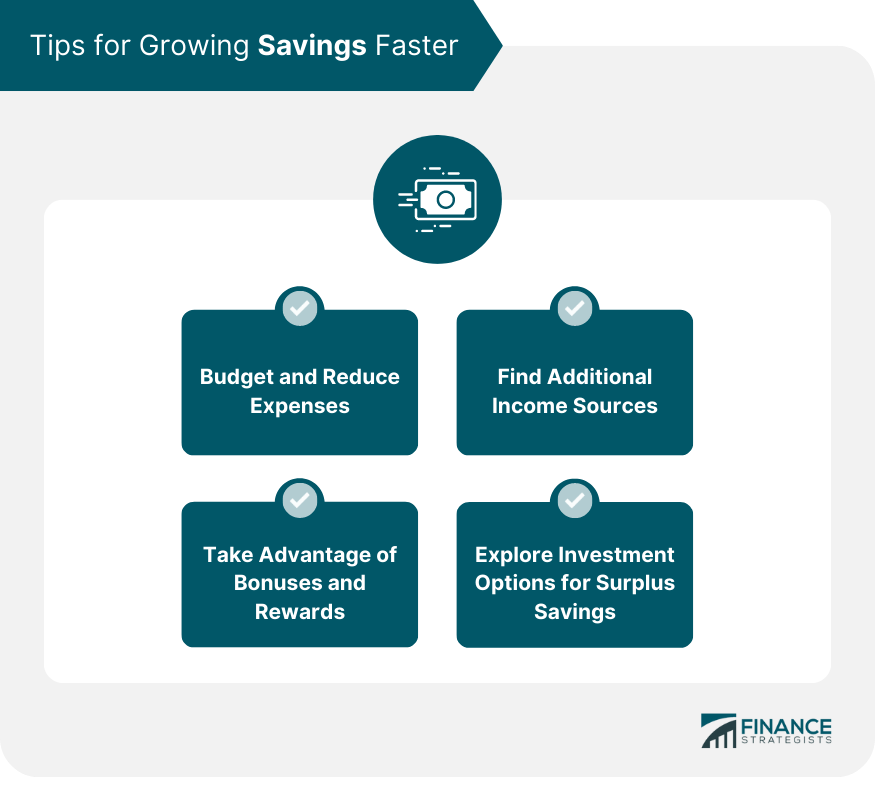A savings account is a basic financial product offered by banks and credit unions that allows individuals to securely deposit and store their money while earning interest on the balance. These accounts provide a safe haven for funds, and they are an integral part of personal finance management for individuals seeking to build financial security. The primary purpose of a savings account is to encourage a habit of saving and to keep money readily available for future needs. By separating their savings from regular spending money, individuals can resist the temptation to spend everything they earn, which in turn promotes responsible financial behavior. Savings accounts are ideal for achieving short-term financial goals, such as saving for a vacation, purchasing expensive items, or building an emergency fund. One of the significant benefits of a savings account is the opportunity to earn interest on the deposited funds. While the interest rates might not match those of high-risk investments, they are generally higher than the interest earned on checking accounts. Over time, compounding interest can significantly boost the account balance, helping individuals reach their savings goals faster. Savings accounts are considered a safe and secure way to store money. They are typically insured by government agencies, such as the Federal Deposit Insurance Corporation (FDIC) in the United States, which protects deposited funds up to a certain limit per account holder, per bank. This insurance mitigates the risk of losing money in case of bank failures, making savings accounts a low-risk option for preserving capital. Despite their long-term savings nature, savings accounts offer relatively easy access to funds. Most financial institutions provide multiple channels for withdrawals, such as ATMs, online transfers, and branch visits. This accessibility ensures that individuals can quickly access their savings in case of emergencies or other urgent needs without facing unnecessary delays. Having a designated savings account encourages financial discipline. By setting specific savings goals and allocating funds to a separate account, individuals are less likely to use that money for impulsive purchases. This disciplined approach helps build good money management habits and fosters a culture of saving for the future. An emergency fund, typically three to six months' worth of living expenses, acts as a safety net during unforeseen circumstances such as medical emergencies, car repairs, or unexpected job loss. By keeping the emergency fund in a savings account, it remains easily accessible when needed most. In some regions, certain types of savings accounts offer tax benefits. For instance, contributions to a retirement savings account, such as a Traditional IRA or 401(k), may be tax-deductible, reducing the individual's taxable income for the year. Additionally, some savings accounts, like Health Savings Accounts (HSAs), offer tax advantages for qualified medical expenses. These tax benefits can help individuals retain more of their hard-earned money while building financial security. To truly harness the benefits of a savings account and pave the way towards financial security and success, individuals must adopt proactive and strategic approaches. At the heart of maximizing savings account benefits lies the art of setting clear and purposeful savings goals. Without defined targets, it becomes challenging to maintain the motivation and discipline required for consistent saving efforts. Whether the aim is to fund a dream vacation, accumulate funds for a down payment on a house, or establish an emergency fund, specificity is key. By outlining concrete objectives, individuals can develop a tangible roadmap for their financial journey and, in turn, remain steadfast in their dedication to building their savings. Automating savings contributions takes the burden of manual transfers off individuals, ensuring a steady and consistent flow of funds into their savings account. By setting up automatic transfers from a checking account to a savings account on a regular schedule, individuals can effortlessly channel a portion of their income towards savings before they even have the chance to consider spending it elsewhere. This process not only streamlines saving efforts but also minimizes the temptation to dip into savings for discretionary expenses. No financial strategy is complete without the establishment of a robust emergency fund. Building an emergency fund should be a primary focus when maximizing savings account benefits. Life is filled with unexpected twists and turns, ranging from medical emergencies to unforeseen job losses. By aiming to save at least three to six months' worth of living expenses in an easily accessible savings account, individuals can safeguard themselves against the financial strain that accompanies unforeseen hardships. An emergency fund provides a sense of security, allowing individuals to face challenging circumstances with greater confidence and resilience. While setting savings goals and automating contributions form the foundation of effective saving, flexibility and adaptability are equally vital components. Life is ever-changing, and financial goals may evolve over time. It is essential to regularly review savings progress and assess whether current strategies align with shifting circumstances and aspirations. During periods of increased income, individuals may consider boosting their savings contributions to accelerate progress. Likewise, when financial priorities shift, adjustments to savings goals and strategies may be necessary to remain on the path to success. The following are actionable tips to maximize savings account benefits and achieve financial goals with confidence. From budgeting techniques to exploring investment options, learn how to grow your savings faster and secure your financial future. Creating a well-structured budget not only provides a clear overview of income and expenditures but also identifies areas where spending can be trimmed to free up additional funds for savings. By setting strict limits on discretionary spending and prioritizing needs over wants, individuals can redirect surplus income towards their savings account. Even seemingly minor cutbacks in everyday expenses can accumulate into substantial savings over time, propelling individuals closer to their financial goals. To supercharge savings growth, one must explore opportunities to bolster their income streams. Embracing additional income sources, such as freelancing, part-time work, or passive income ventures, can significantly augment the funds available for saving. This extra earning potential not only expedites progress towards financial goals but also creates a buffer against unforeseen expenses, further strengthening one's financial stability. Financial institutions often entice customers with lucrative bonuses and rewards as incentives for opening a savings account or maintaining a particular balance. Taking advantage of these promotions can provide a timely boost to one's savings efforts. From cash rewards to interest rate boosts, these incentives not only amplify savings returns but also foster a sense of accomplishment and motivation. By aligning their savings goals with such promotions, individuals can maximize the benefits of their savings account while simultaneously enjoying the perks offered by their banking institution. When a savings account balance surpasses the amount needed for emergencies, exploring investment options can open doors to higher returns. While savings accounts offer security and liquidity, investments such as stocks, bonds, or mutual funds have the potential for greater growth. However, this step requires careful consideration and research, as investments inherently carry risks. Diversification and seeking professional advice are key to mitigating potential pitfalls and ensuring that surplus savings are allocated to suitable investment vehicles. A savings account serves as a fundamental tool in personal finance management, offering numerous benefits to individuals seeking to build financial security. The primary purpose of a savings account is to cultivate a habit of saving and keep funds readily available for future needs. The advantages of a savings account include higher interest rates than checking accounts. Offers safety and security, often insured by government agencies, mitigating the risk of losing money due to bank failures. Savings accounts also foster financial discipline and goal setting, encouraging individuals to save for short-term objectives and create essential emergency funds. Tax benefits in certain regions provide additional incentives for individuals to retain more of their hard-earned money. Overall, a savings account is key to building financial stability and securing a prosperous future.What Is a Savings Account?
Benefits of Opening a Savings Account
Higher Interest Rates
Safety of Funds
Easy Access to Money
Financial Discipline and Goal Setting
Emergency Fund Creation
Tax Benefits

How to Maximize Savings Account Benefits
Setting Savings Goals
Automating Savings Contributions
Creating an Emergency Fund
Regularly Reviewing and Adjusting Savings Strategy

Tips for Growing Savings Faster
Budgeting and Reducing Expenses
Finding Additional Income Sources
Taking Advantage of Bonuses and Rewards
Exploring Investment Options for Surplus Savings

Conclusion
Benefits of Opening a Savings Account FAQs
Opening a savings account provides higher interest rates, safety of funds, and easy access to your money.
By separating your savings from regular spending, a savings account helps you resist the temptation to spend everything you earn, promoting responsible financial behavior.
A savings account is ideal for saving for a vacation, purchasing expensive items, or building an emergency fund.
Certain types of savings accounts, like retirement accounts (e.g., Traditional IRA, 401(k)), may offer tax deductions, reducing your taxable income. Health Savings Accounts (HSAs) can also provide tax advantages for qualified medical expenses.
Over time, compounding interest can significantly boost your savings account balance, helping you reach your savings goals faster.
True Tamplin is a published author, public speaker, CEO of UpDigital, and founder of Finance Strategists.
True is a Certified Educator in Personal Finance (CEPF®), author of The Handy Financial Ratios Guide, a member of the Society for Advancing Business Editing and Writing, contributes to his financial education site, Finance Strategists, and has spoken to various financial communities such as the CFA Institute, as well as university students like his Alma mater, Biola University, where he received a bachelor of science in business and data analytics.
To learn more about True, visit his personal website or view his author profiles on Amazon, Nasdaq and Forbes.











